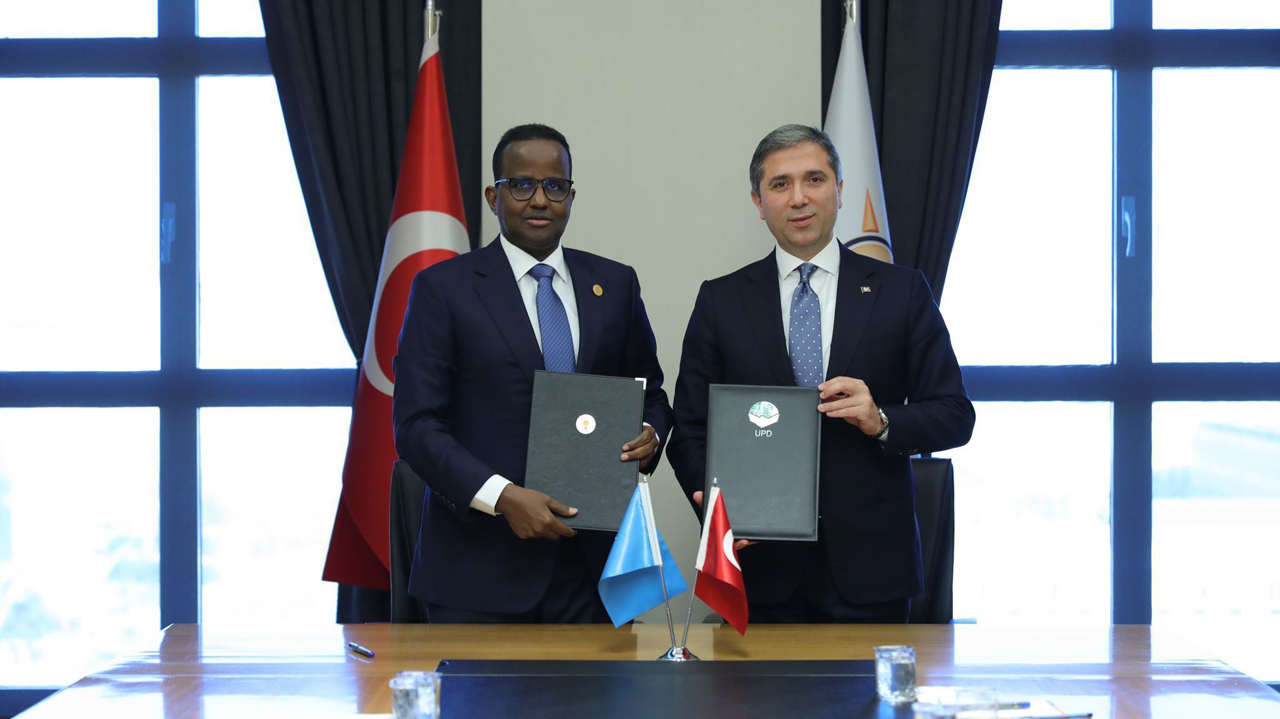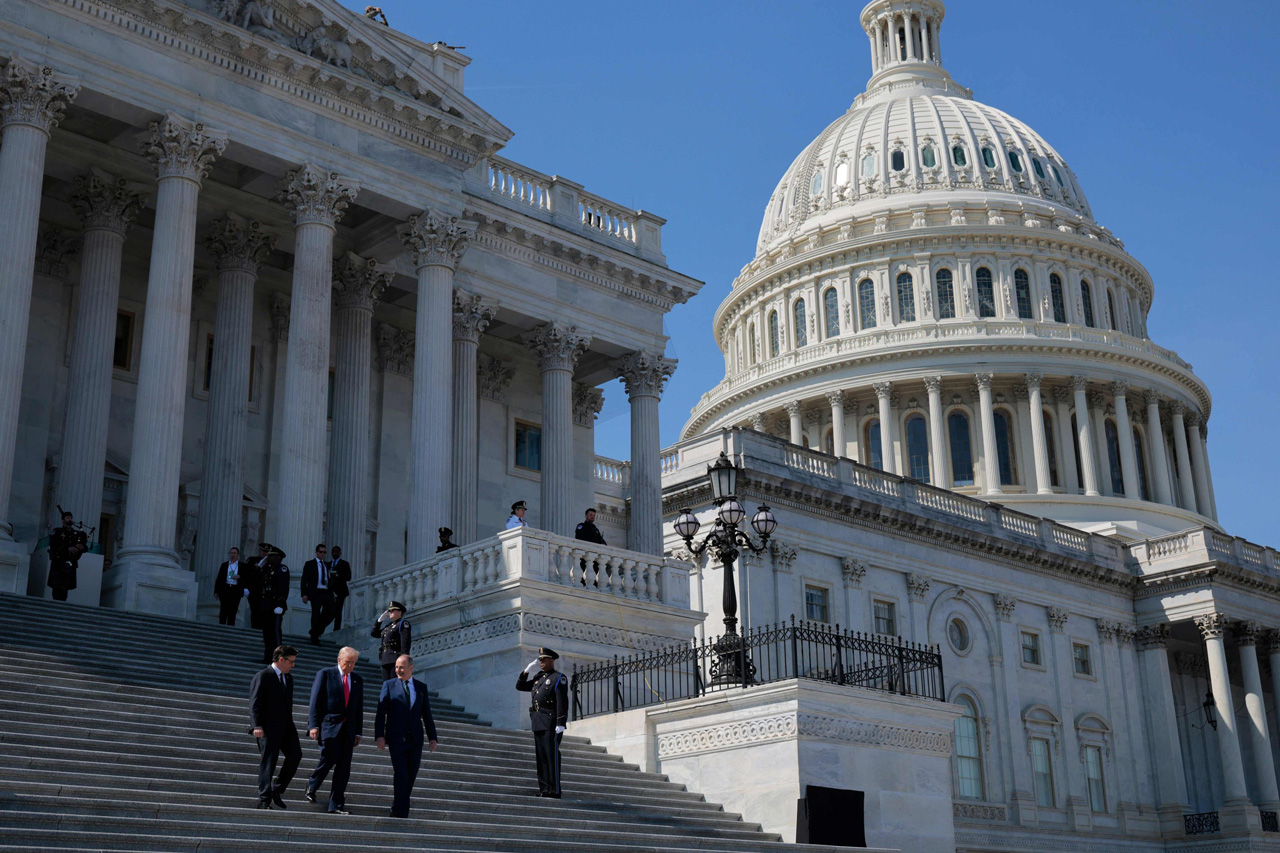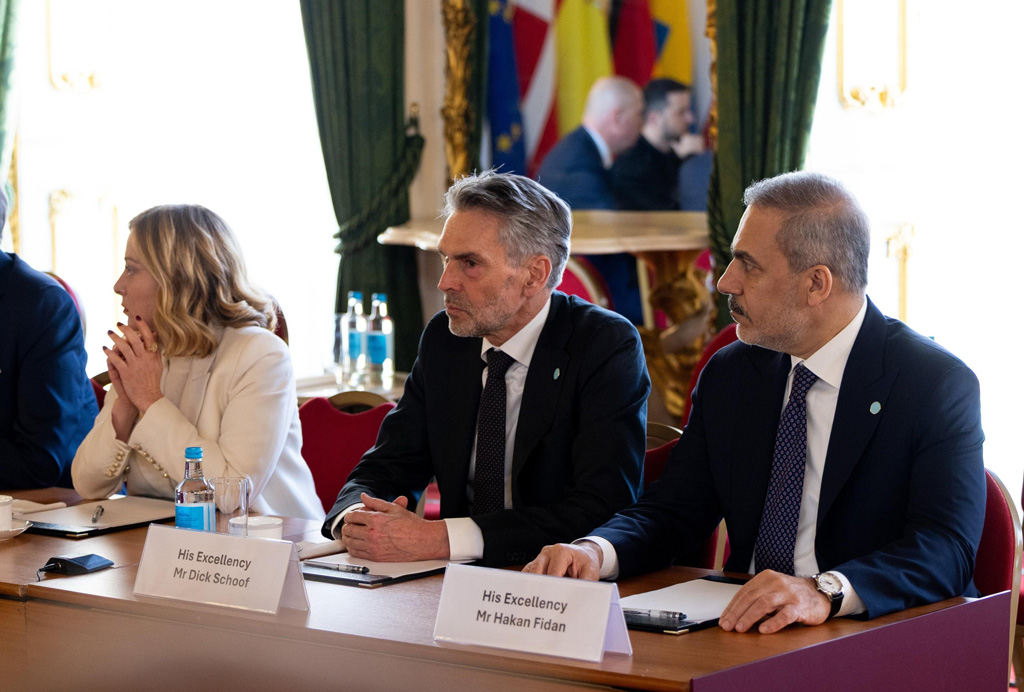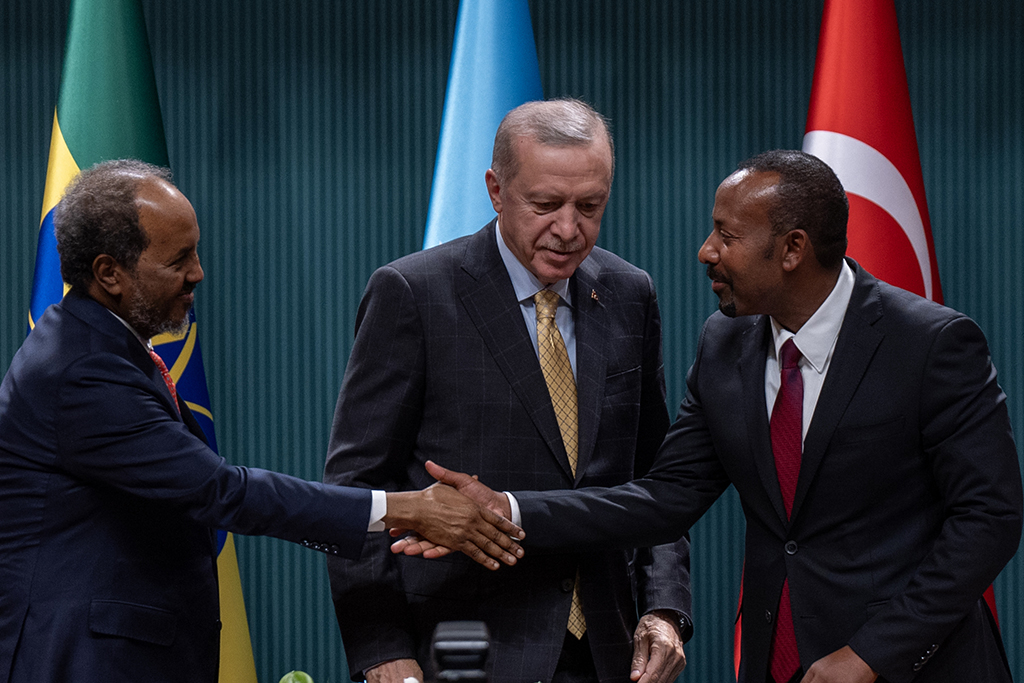President Erdoğan and the AK Party’s Africa Vision
Under the leadership of President Recep Tayyip Erdoğan, the Justice and Development Party (AK Party) has undertaken significant international initiatives within the framework of "Türkiye’s Century." Political parties play an active role in shaping foreign policy and often reinforce it through bilateral cooperation. In this context, the Foreign Affairs Chairmanship of Türkiye’s ruling AK Party recently signed memorandums of understanding (MoUs) with the Union for Peace and Development Party (UPD) of Somali President Hassan Sheikh Mohamud, the Prosperity Party (PP) led by Ethiopian Prime Minister Abiy Ahmed, and the People's Rally for Progress (RPP) of Djiboutian President Ismail Omar Guelleh.
Previously, the AK Party had signed 13 MoUs with various political parties. With the latest agreements in Somalia, Ethiopia, and Djibouti, the number of MoUs signed with ruling parties in Africa reached six. In 2019, agreements were reached with the Democratic Party in Equatorial Guinea and the African National Congress in South Africa, followed by an MoU with the Rwandan Patriotic Front in 2023.
These MoUs reflect the AK Party's strategic approach to institutionalizing relations with ruling parties across Africa. Beyond inter-governmental relations, they aim to increase direct engagement at the political party level and promote experience-sharing. Strengthening ties with ruling parties in Africa contributes to deeper relations and provides an opportunity to develop a shared vision of political stability, development cooperation, and regional security.
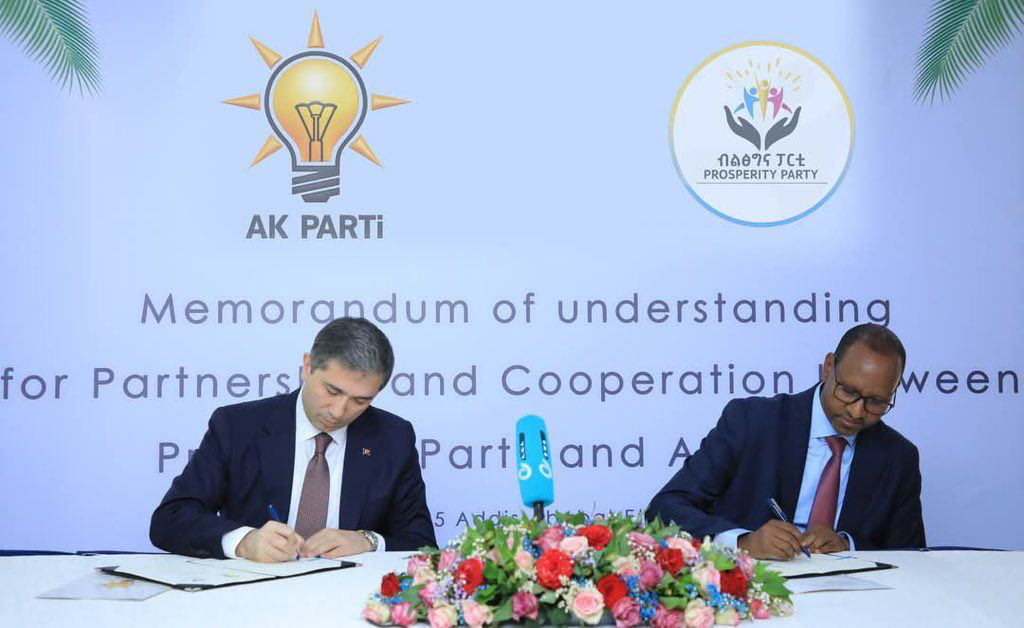
A Layer of Relations: Party Diplomacy
Türkiye is expanding its influence in Africa through a multidimensional approach and integrating its strategic vision. The country’s engagement with Africa gained momentum after declaring 2005 as the "Year of Africa." It has now evolved into a well-established and continuous state policy. Türkiye’s Africa policy involves multiple actors, including ministries, institutions, nongovernmental organizations (NGOs), think tanks, academia, and political parties.Türkiye,
The AK Party, with its nearly 25 years of governance experience, has been playing an increasingly prominent role in Africa, particularly in the Horn of Africa. Today, Türkiye maintains 44 embassies across the continent, alongside institutions like the Turkish Cooperation and Coordination Agency (TİKA), Turks Abroad and Related Communities (YTB), the Maarif Foundation, Yunus Emre Institute, the African Culture House, Turkish Airlines, and TRT Africa. While Türkiye’s diplomatic and economic engagement has traditionally been state-driven, party-to-party relations have recently emerged as a new pillar of engagement.
The MoUs signed with the ruling parties of Somalia, Ethiopia, and Djibouti have the potential to strengthen Türkiye’s partnerships in the Horn of Africa. These agreements not only expand institutional cooperation but also align with Türkiye’s long-term objectives on the continent. The regional approach reflected in these agreements indicates the AK Party’s sensitivity to both Türkiye’s and the partner countries’ interests. By avoiding a one-sided engagement, the AK Party demonstrates its willingness to work with the legitimate governments of all nations in the region. This also shows the party’s awareness of the realities and dynamics on the ground, allowing for the possibility of new, future collaborations.
According to AK Party officials, the party remains open to dialogue with political parties across Africa. This approach aligns with Türkiye’s broader diplomatic principles of maintaining engagement with all legitimate political actors while respecting national sovereignty.
Multidimensional Diplomacy and the Post-Ankara Declaration Process
Türkiye’s influence in the Horn of Africa extends beyond state-to-state relations, encompassing the private sector, civil society, and political parties in a multidimensional framework. The MoUs signed in the region underline Türkiye’s holistic approach to cooperation. Political parties play a crucial role in state-building, supporting democratic governance, and shaping long-term development policies.
The AK Party’s agreements with ruling parties in the Horn of Africa go beyond traditional intergovernmental relations, contributing to political stability, governance, capacity-building, and shared development strategies through experience-sharing and institutional cooperation. The agreements also reinforce Türkiye’s strategic engagement in the region by facilitating knowledge transfer on state-building processes.
In this context, political parties are critical actors in strengthening institutional structures, supporting democratic governance, and guiding sustainable development. The AK Party’s partnerships with the ruling parties of Somalia, Ethiopia, and Djibouti serve as a mechanism to enhance governance capacity and share expertise, thereby consolidating Türkiye’s presence in the region. These engagements contribute not only to bilateral political relations but also to regional stability, governance reforms, and long-term cooperation.
Türkiye’s Africa policy is fundamentally aligned with its principle of cooperating with legitimate governments. The signed MoUs are consistent with this principle, reinforcing Türkiye’s approach of engaging with independent and sovereign states while prioritizing political stability. Importantly, these MoUs are not intended to support specific political parties but rather to promote democracy through cooperation with legitimate ruling parties.

Türkiye maintains an inclusive stance, ensuring that its policies serve all people in Africa, regardless of political affiliations. The agreements are thus reflective of party-to-party cooperation rather than direct state intervention. Moreover, given that these MoUs are signed by ruling parties that form their respective governments, the AK Party’s involvement in these agreements is a natural extension of Türkiye’s broader foreign policy approach.
The agreements do not imply interference in the internal affairs of partner countries but aim to enhance cooperation and experience-sharing between ruling parties. Türkiye continues to respect the sovereignty of African nations and maintains an equal distance from all political and social groups. Through these MoUs, Türkiye strengthens political dialogue while upholding its inclusive and neutral stance on Africa.
The Scope and Strategic Significance of the MoUs
The signed MoUs symbolize a multidimensional approach to cooperation between ruling parties. These agreements include experience-sharing on governance, political programming, and public engagement to strengthen institutional capacity. They also emphasize strengthening bilateral ties based on principles of independence, equality, and mutual respect. Political confidence-building is another key aspect, with parties committing to continuous dialogue to enhance political relations.
The agreements also outline plans for delegation exchanges at different levels, including women’s and youth branches, ensuring dynamic and sustained communication between political parties. Joint research and education activities, leadership training programs, and academic collaborations are expected to be developed, fostering solidarity among political elites and emerging leaders.
Furthermore, the MoUs cover cooperation with civil society organizations, academic institutions, and media outlets to promote cultural and intellectual exchange. Economic and trade cooperation is also encouraged, with a focus on sectors such as energy, health care, agriculture, tourism, and culture.
In addition, the agreements emphasize joint media and information-sharing efforts to ensure accurate narratives on cultural, historical, and strategic issues.
Discussions on global affairs and emergency response cooperation mechanisms are also included.
Lastly, both parties have agreed to invite each other to international events to enhance diplomatic visibility and collaboration.
A MoU of Symbolic Importance for Democracy and Development
The AK Party’s experiences in democracy and development hold valuable insights for its African partners. The MoUs signed with the ruling parties of Somalia, Ethiopia, and Djibouti allow the AK Party to share its knowledge on democratization and governance at the international level.
Given the political transitions in the region, these agreements establish a long-term dialogue framework, not just with current ruling parties but with potential future political actors as well.
The AK Party’s approach to maintaining dialogue and cooperation with all political stakeholders reflects Türkiye’s inclusive strategy in Africa. Türkiye’s balanced foreign policy, which avoids interference while supporting cooperation and democratic processes, remains a fundamental principle.
The AK Party’s sensitivity to local dynamics and governance structures paves the way for deeper future collaborations.
In summary, these MoUs demonstrate the AK Party’s commitment to cooperation and democracy in Somalia, Ethiopia, and Djibouti, reinforcing Türkiye’s comprehensive engagement in Africa.

